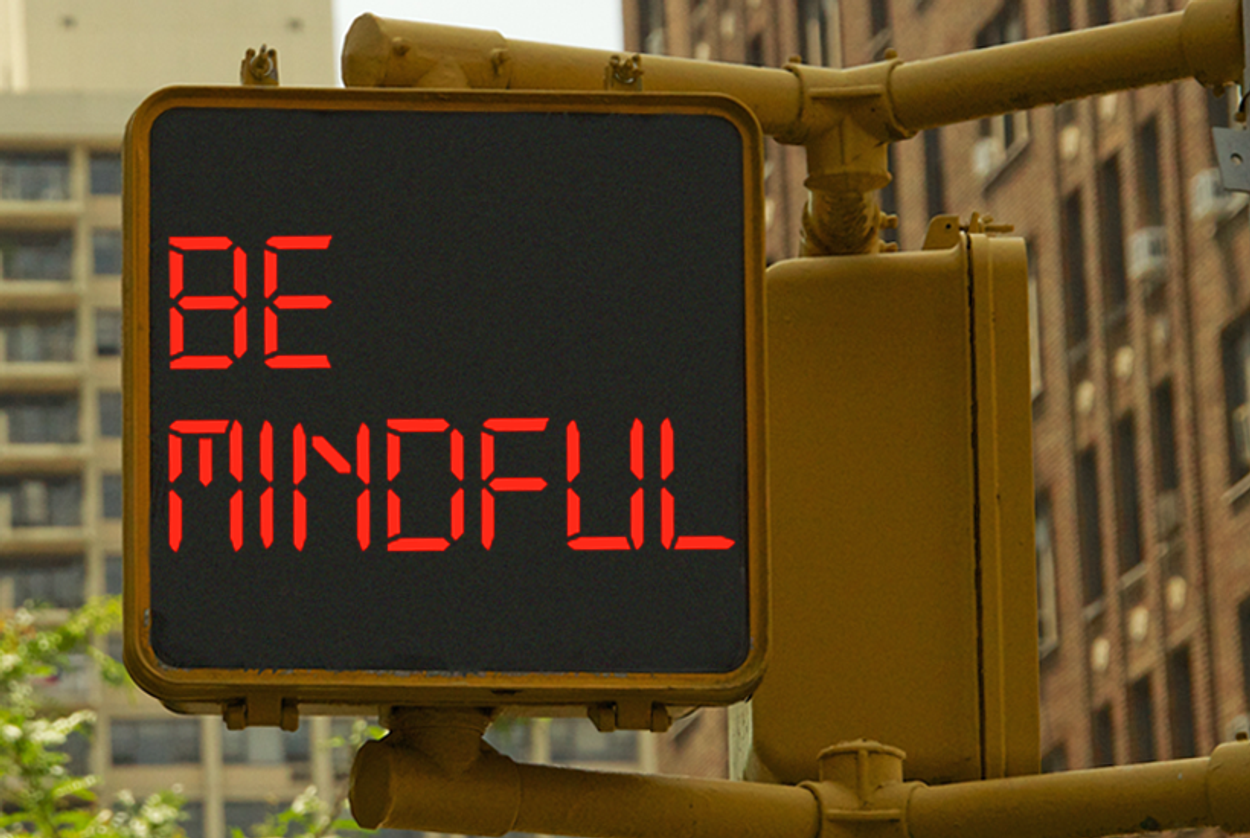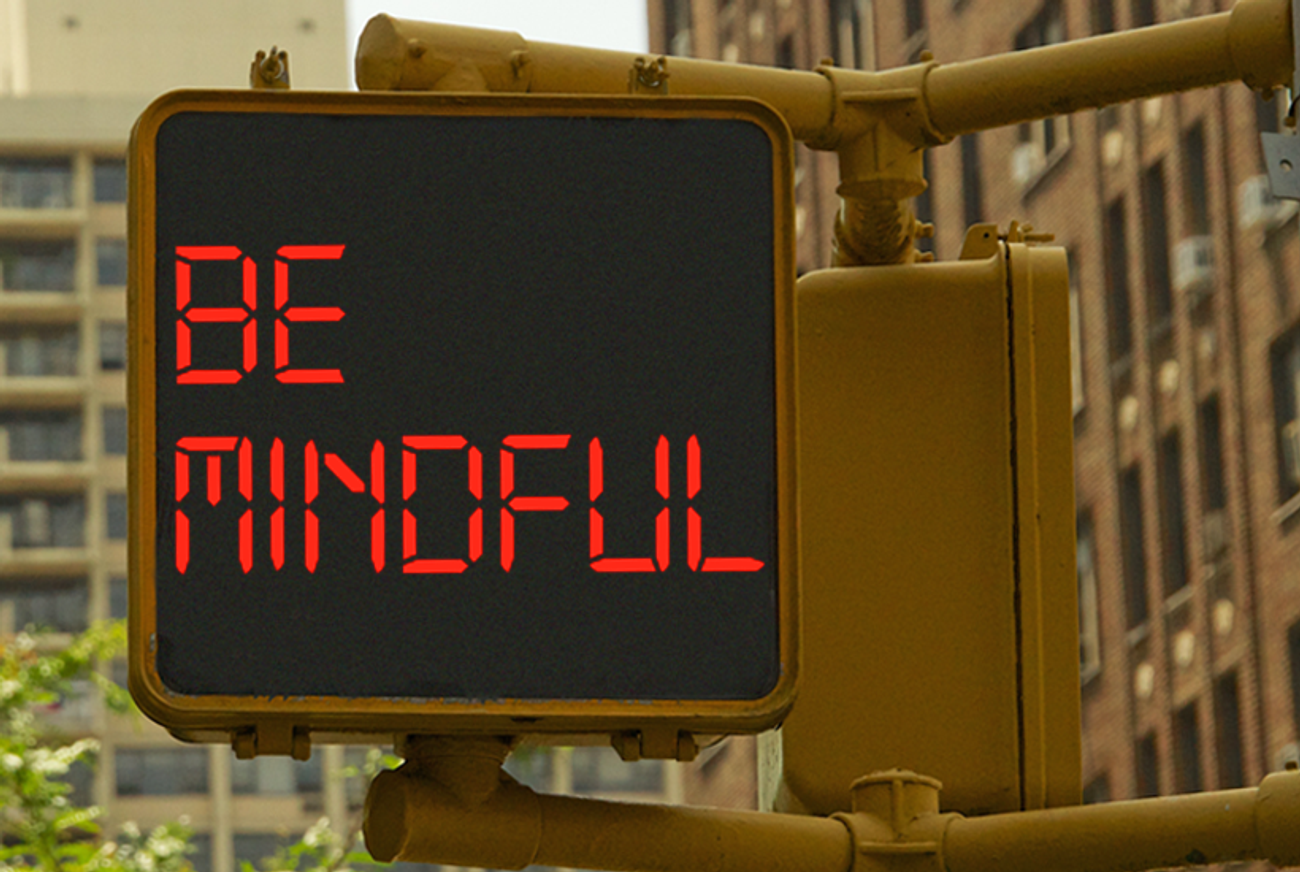Red Light, Green Light: How Traffic Observance Dovetails With Ethical Choices
When I started taking crosswalk laws more seriously, I learned a lot about finger-pointing, empathy, and myself




In September 2008 I made a personal decision, a commitment born of soul-searching before the Jewish New Year: I would no longer jaywalk or cross against a red light.
I had been reading reports that traffic deaths in my home city of New York had dropped during the previous year. When I divided the total number of fatalities by 12, it became clear that the reports were viewing “only” 23 traffic deaths per month as evidence of progress.
I probed further and discovered that there had been 10 times as many traffic fatalities in the State of Israel since 1948 as deaths from terrorist attacks. Something was terribly wrong. What could I do about it—immediately and continually?
As a lifelong pedestrian, I believed then that the primary responsibility for traffic deaths lay with driving culture. Even so, I decided that I would do what was in my power to keep my side of the street clean.
Taking an unpopular stand for greater traffic safety has been eye-opening. It has inserted new challenges of Mussar, Jewish ethical discipline, into my daily routine. And it has intensified my understanding of the prophet Isaiah’s cryptic declaration—chanted every Yom Kippur—that if we want a better world, we need to stop pointing fingers.
***
I was born in Manhattan and identify as a native New Yorker, although my family moved to the suburbs before my fourth birthday. Childhood visits back to the city were frequent, and we spent most of that time traversing the streets on foot.
My suburban adolescent rebellion took an unusual turn: I never got a driver’s license, even though public transportation was almost nonexistent where I grew up. I declared my independence by walking, periodically hiking four miles between my home and high school, mostly along a state highway that spanned my county east to west. When I couldn’t get where I wanted to go on foot, I either found a ride or stayed home.
From an early age, I was drawn to the Jewish ethical challenges of accountability for self and others. It was also during those suburban years that I learned the classic anecdote from Nathan Ausubel’s A Treasury of Jewish Folklore, in which a group of Nazis surrounds an elderly Jewish man and demands that he account for who started World War I.
The little Jew was no fool. “The Jews,” he said, then added, “and the bicycle riders.”
The Nazis were puzzled. “Why the bicycle riders?”
“Why the Jews?” answered the little old man.
When I left home for college, I began to struggle with the complexities of post-Holocaust Jewish powerlessness, power, and accountability in both the Diaspora and Israel (where I lived for five years). It wasn’t until I began observing the Torah of traffic lights, after decades back in New York, that I began to question the accountability of the bicycle riders as well.
***
The Jewish year that has just begun is a Shmita (sabbatical) year, a Shabbat Shabbaton (Sabbath of Sabbaths). Shabbat literally means stopping. Many Jews across the denominational spectrum are exploring Shmita, joining a broader nonsectarian Slow Movement that seeks to stop our speed-addicted civilization from hurtling toward destruction.
But our daily lives in urban centers are organized around expectations of speed, regardless of how we travel. Bringing Mussar to bear on impatience, writer Siân Gibby in these pages has examined her pedestrian rage as a possible “affectation I picked up here to fit in with how I perceived New Yorkers to be and to feel.”
I admit to my share of New Yorker attitude. I know how to face down an approaching vehicle as I move through a crosswalk (self-righteously, with the light on my side). Yet since I began to follow traffic lights, some seem to think that I’ve betrayed my native heritage. Most reactions to my admittedly inconvenient practice have ranged from indulgent curiosity to outright hostility.
I’ve heard arguments that personal judgment and discretion are safer and more reliable than law and social contract. Meanwhile, traffic deaths in my city have remained high, periodically exceeding the counts that originally galvanized me, with pedestrians increasingly vulnerable.
I have learned simply to say, “I don’t cross against lights” when stopping at a corner with someone who doesn’t know (or remember) my practice. If confronted, I explain that I’m not making any decisions for anyone else—and that if getting there as quickly as possible is most important, then the person should forge ahead. Some do, even though the time they save is seldom more than a minute or two before I reach the same destination.
I myself can be frustrated when the timing of traffic lights does not correspond to my natural walking pace, obliging me to stop at every corner. Still, my personal commitment continues to yield discoveries both humbling and inspiring.
On one hand, it has not prevented me from charging up the steps of my elevated subway platform toward an arriving train, once impatiently brushing past a slow-moving woman who shouted after me: “I can’t go any faster; I have a disability!” On the other hand, my practice has helped me to acknowledge my responsibility for teshuvah (returning, repentance) where warranted in such situations.
In Pirkei Avot, one of the foundations of Mussar literature, Rabbi Eliezer declares that the best day for teshuvah is “one day before your death.” The later Babylonian Talmud recounts that his students questioned this: “Do any of us know the day we will die?” “All the more so,” replied Rabbi Eliezer. “Let us return today lest we die tomorrow, and we will spend all of our days in teshuvah.”
Halakhah is Jewish law, and it can be literally understood as the way one walks—traditionally speaking, in the rhythms of communal responsibility. Remez is a hint, and also refers to a symbolic level of Torah interpretation. And the Hebrew word for traffic light is ramzor, a combination of the words remez and or (light).
At every street corner I am offered a symbolic “hint of light” that reminds me to walk the walk of communal responsibility. Far from the calming influence of any meditation hall, my traffic practice is a recurrent invitation to slow down, breathe, and return to the present moment: a perennial opportunity for teshuvah, one day before my death—or someone else’s.
***
Three pedestrians in New York City have been killed in collisions with bicycles since I began my practice, two of them within the past three months. All three happened to be Jews, and their deaths sent shock waves through congregations in New Jersey, New York, and Connecticut.
Although I’ve rarely ridden a bicycle as an adult, I would prefer a world with more bikes and fewer cars. That said, my six years of honoring traffic lights have given me a less partisan view of transportation problems. Unlike motor vehicles, bicycles are generally inaudible when they approach from behind. I have been too frequently shaken when a cyclist passes within inches of me on the sidewalk or on park paths designated for pedestrians only. Too many other cyclists swerve around me in crosswalks as they sail through red lights.
And yes, I know that many of my fellow pedestrians walk carelessly in the street. And yes, I know that the overwhelming majority of traffic injuries and fatalities involve motor vehicles. But it is a basic Jewish principle that saving one life saves an entire world, while losing one life loses an entire world.
Nancy Gruskin, whose husband Stuart was killed in a 2009 collision with a cyclist, has advocated for basic accountability instead of “a civil war between cyclists and pedestrians and motorists and everybody screaming at each other.”
Hindy Schachter, whose husband Irving was killed in a collision with a cyclist this past August, offers an insider’s perspective on “the cyclist’s dual nature. Many of us see cyclists as potential victims of cars. And we are. … But we are also potential predators. … As we want car drivers to be alert to our rights, so too we must act to protect the rights of other people.”
“If anything good can come out of the [most recent such] death of Jill Tarlov,” ventured transportation commentator Sarah Goodyear in September, “it would be an increased realization of the responsibility we all have toward each other as human beings, all of us trying to use the limited resource of street space in New York or any other crowded city. … We should take care of each other.”
Goodyear subsequently quoted William Milczarski, a professor of urban planning, on moving beyond the “Three E’s” of transportation reform: “Engineering, education, and enforcement. I say maybe we should add a fourth ‘E’: empathy. When we’re drivers, we forget that we’re also pedestrians. When we’re walking, we forget what it’s like to drive. The same thing goes for bikes. We always forget that we have these other ways that we get around.”
***
The prophet Isaiah reminds us that sh’lakh-etzba (finger-pointing) is not the way to justice. Since Isaiah remains one of our classic professional finger-pointers, it is understandable that this particular ethical challenge has been mostly overlooked.
I’ve learned at street level that in finger-pointing, as in other forms of self-righteousness, the righteousness is usually deflected by the self. I’ve also learned that a personal commitment to Mussar can reverse that effect, developing the willingness of self to yield the right of way. As I support improvements in engineering, education, and enforcement, I continue to observe the Torah of traffic lights as my daily practice of Milczarski’s “fourth E” of empathy.
Meanwhile, the Union for Reform Judaism has taken the traffic light as a children’s tool for teshuvah. Red signifies “Stop and think.” Yellow becomes “Reflect.” Green exhorts “Go make a difference.” There’s a simple chant to accompany the visual symbols.
That chant may not be a mantra I’m repeating under my breath the next time you see me waiting for the light to change. But I’ll be doing my best to make a difference by stopping. You’re welcome to join me.
***
You can help support Tablet’s unique brand of Jewish journalism. Click here to donate today.
Rabbi Regina Sandler-Phillips is the director of WAYS OF PEACE Community Resources in Brooklyn, N.Y.
Rabbi Regina Sandler-Phillips is the director of WAYS OF PEACE Community Resources in Brooklyn, N.Y.